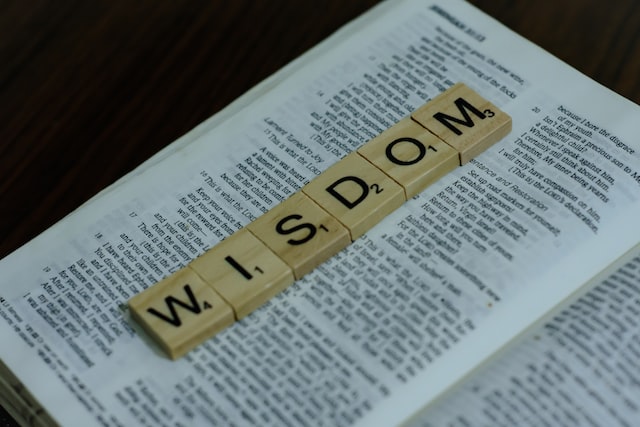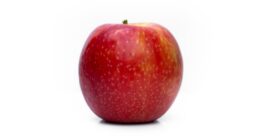Clever is defined as “skilful in achieving one’s aims; ingenious,” while wise is defined as “having or showing experience, knowledge, and good judgment; sensible and prudent.”
What is wisdom?
(Photo by Alex Shute on Unsplash )

There is much debate over what wisdom actually is, but most people would agree that it is a quality that goes beyond simply being clever. A wise person has the ability to see the bigger picture and make decisions based on long-term implications, rather than just what will benefit them in the short term. They also tend to be good at solving problems and offering advice, as they have a broad understanding of the world and how it works. In general, wisdom is about having a deep understanding of life and using that knowledge to make good choices.
Wisdom is a more long-term form of intelligence. It’s the ability to make sound decisions based on experience and knowledge. Wisdom isn’t just about getting good grades in school or knowing a lot of facts; it’s about using that knowledge to make good choices in life.
What does it mean to be wise?
Being wise, on the other hand, means to have good judgement and common sense. A person who is wise has a deep understanding of the world and the experiences that life has to offer. They have learned from their past experiences and use this knowledge to make informed decisions. Wisdom also includes having the ability to understand the consequences of their actions and to make decisions that will lead to the best possible outcome.
What is cleverness?
(Photo by Nathan Anderson on Unsplash )

Cleverness is often described as quick-wittedness or being street-smart. It’s the ability to devise a clever solution on the spot or think outside the box.
So which one is more important? That depends on what you’re looking for. If you need a quick fix or someone to come up with an innovative solution, you’ll want someone who is clever. But if you’re looking for someone to give you advice or help you make major life decisions, you’ll want someone wise.
What does it mean to be clever?
Being clever means to be intelligent and have the ability to think and solve problems quickly. A person who is clever is able to use their intellect to come up with creative and innovative solutions to various problems. They have a good understanding of the world around them, and they can quickly adapt to new situations.
How are clever and wise different?
While both clever and wise people have the ability to solve problems, the approach they take to solving these problems is different. A clever person may come up with a quick solution to a problem, but it may not necessarily be the best solution. A wise person, on the other hand, takes the time to consider all options and make a decision based on the long-term consequences.
Clever people often rely on their intellect to get them out of difficult situations, whereas wise people rely on their experience and judgement. Clever people may have a lot of knowledge, but they may lack the ability to apply it in real-life situations. Wise people, on the other hand, have a better understanding of how to use their knowledge to make informed decisions.
What is difference between intelligent wise and clever?
Intelligence, wisdom, and cleverness are related concepts but refer to distinct qualities. Here is a comparison of the three terms:
Intelligence refers to a person’s ability to learn, understand, and reason effectively. It is typically measured by intelligence tests and is often associated with cognitive abilities such as memory, perception, and problem-solving.
Wisdom, on the other hand, refers to the ability to make good judgments and take appropriate actions based on life experience and knowledge. Wisdom is a broader and more comprehensive term than intelligence, and it encompasses not only cognitive abilities but also emotional intelligence, ethical awareness, and practical knowledge.
Cleverness, on the other hand, refers to being quick-witted and inventive. It involves being able to think creatively and come up with clever solutions to problems. Cleverness is often associated with a certain level of intelligence, but it is a more specific and focused ability than intelligence.
Intelligence refers to cognitive abilities, wisdom refers to practical knowledge and good judgment, and cleverness refers to quick-wittedness and inventiveness. All three qualities can be valuable and important, but they are distinct from one another and should not be conflated.
The importance of being both clever and wise
While it is important to be either clever or wise, it is even more crucial to be both. By combining their intelligence and judgement, a person who is both clever and wise is able to make informed decisions and find effective solutions to problems.
Being both clever and wise means that a person has a well-rounded approach to life. They are able to use their intellect to come up with creative solutions to problems, but they also have the wisdom to understand the consequences of their actions and make decisions that will lead to the best possible outcome.
How does one know if he/she is clever or wise?
Cleverness and wisdom are two distinct qualities that are often mistaken for one another. While both can be useful in different situations, they serve different purposes and can have different outcomes.
Cleverness refers to the ability to think quickly and creatively in order to solve problems or overcome challenges. It is often characterized by intelligence, cunning, and the ability to think outside the box. People who are clever are able to see new possibilities and come up with innovative solutions to problems.
Wisdom, on the other hand, refers to a deep understanding of life and the world around us. It is characterized by good judgment, experience, and the ability to make sound decisions. Wise individuals are able to see the big picture and make decisions based on what is best for themselves and others, even if it is not the most popular choice.
To determine if one is clever or wise, it is important to consider their approach to life and the decisions they make. Do they consistently make smart, informed choices? Do they exhibit a deep understanding of the world and their place in it? Or do they rely on their intelligence and quick thinking to solve problems and overcome challenges?
Ultimately, being both clever and wise can lead to a fulfilling and successful life, but it is important to understand the differences between the two and strive to develop both qualities.
Examples of clever and wise people
There are many examples of both clever and wise individuals from history and popular culture.
Examples of clever individuals include:
- Leonardo da Vinci, a Renaissance artist and inventor who was known for his innovative ideas and quick thinking.
- Albert Einstein, a theoretical physicist who revolutionized our understanding of space, time, and matter.
- Steve Jobs, a co-founder of Apple who was known for his ability to see new possibilities and turn seemingly impossible ideas into reality.
Examples of wise individuals include:
- Mahatma Gandhi, an Indian independence leader who advocated for non-violent resistance and inspired millions with his wisdom and compassion.
- Martin Luther King Jr., an American civil rights leader who used his wisdom and determination to change the course of history.
- Mother Teresa, a Catholic nun who devoted her life to helping the poor and sick, and was known for her deep compassion and understanding of the human condition.
These are just a few examples of the many clever and wise individuals who have made a lasting impact on the world. It is important to note that both cleverness and wisdom are valuable qualities to have, and can often be found in the same person.
How can one become wiser?
Becoming wiser is a lifelong journey that requires effort and commitment. Here are a few steps one can take to increase their wisdom:
- Learn from experiences: One of the best ways to gain wisdom is by learning from experiences, both good and bad. By reflecting on your experiences and considering what you have learned, you can gain a deeper understanding of yourself and the world around you.
- Seek knowledge: Wisdom is often the result of a broad and deep understanding of the world. Reading books, attending lectures and workshops, and seeking out knowledgeable individuals can all help you gain knowledge and increase your wisdom.
- Embrace challenges: Challenges and obstacles are an opportunity to learn and grow. By facing challenges head-on and learning from them, you can gain a greater understanding of yourself and the world around you.
- Practice empathy: Understanding other people’s perspectives is a key component of wisdom. By putting yourself in other people’s shoes, you can gain a greater appreciation for their experiences and see the world from a new perspective.
- Cultivate self-awareness: Understanding your own thoughts, emotions, and motivations is an important aspect of wisdom. By engaging in introspection and self-reflection, you can gain greater insight into yourself and make more informed decisions.
- Surround yourself with wise individuals: Seek out people who you admire for their wisdom and spend time with them. You can learn a great deal from those who have lived a full and meaningful life.
It is important to note that becoming wiser is a lifelong process and requires continuous effort. By incorporating these steps into your daily life, you can increase your wisdom and lead a more fulfilling life.
How can one become cleverer?
Becoming cleverer requires developing your cognitive abilities and making the most of your natural intelligence. Here are a few steps one can take to increase their cleverness:
- Exercise your brain: Engaging in mentally stimulating activities such as reading, solving puzzles, and learning a new skill can help increase your brain function and enhance your cleverness.
- Stay curious: Maintaining a curious and open mind can help you stay sharp and quick-witted. Seek out new experiences and opportunities to learn, and embrace new ideas and perspectives.
- Practice problem-solving: Developing your problem-solving skills can help you think creatively and find clever solutions to difficult problems.
- Stay organized: Being organized and efficient can help you make the most of your time and resources, and allow you to focus your efforts on the most important tasks.
- Surround yourself with clever individuals: Spending time with individuals who are clever and innovative can inspire you to be your best and push you to new heights.
- Get enough sleep: Sleep is essential for a healthy brain and good cognitive function. By getting enough sleep and taking care of your overall physical health, you can increase your cleverness and improve your ability to think on your feet.
It is important to note that becoming cleverer requires continuous effort and practice. By incorporating these steps into your daily life, you can increase your cleverness and enhance your ability to think creatively and solve problems.
Why a smart person may not be wise?
A smart person may not necessarily be wise because intelligence and wisdom are different qualities. Intelligence refers to a person’s cognitive abilities, such as memory, perception, and problem-solving, while wisdom involves making good judgments and taking appropriate actions based on life experience and knowledge.
A smart person may have a high level of cognitive ability, but they may lack the practical knowledge, emotional intelligence, and ethical awareness that are necessary for wisdom. For example, a highly intelligent person may struggle with making good decisions in complex situations, managing their emotions, or understanding the perspectives of others.
Additionally, intelligence can sometimes lead to overconfidence, which can limit a person’s ability to consider alternative perspectives and make wise decisions. On the other hand, a person who lacks intelligence may still be wise if they have developed their emotional intelligence, practical knowledge, and ethical awareness through life experience and reflection.
In conclusion, intelligence and wisdom are different qualities, and a smart person may not necessarily be wise. A wise person is someone who has developed their cognitive abilities, practical knowledge, emotional intelligence, and ethical awareness, while a smart person may be highly intelligent but lack the other qualities that contribute to wisdom.
Featured Image By – AbsolutVision on Unsplash








